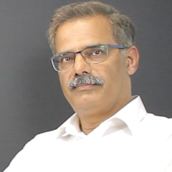Covid-19 and the politics of policymaking
How teams can adapt approaches to support effective decision making during the pandemic
-
Date
October 2020
-
Areas of expertiseClimate, Energy, and Nature , Governance , Health , Research and Evidence (R&E)
-
FeedWEF
-
KeywordsClimate policy and finance , Urban policy and planning , Shock response , Water resource management , Adaptive management , Capacity building , Fast response , Data collection , Diagnostics , Evidence use , Impact evaluation , Inequality , Policy implementation , Policy options , Research uptake , Technical assistance , Value for Money (VFM) , Public Sector Governance (PSG) , Public Financial Management (PFM) , Accountability , Budgeting , Fiscal decentralisation , Health service organisation and delivery (HSOD) , Health systems governance (HSG) , Covid-19 , Nutrition , Primary Health Care , Water sanitation and hygiene (WASH) , Child protection , Monitoring, Evaluation, and Learning (MEL) , Research Management , Qualitative Data Collection , Social Media Listening , Third-Party Monitoring (TPM)
|
30-second summary
|
The covid-19 pandemic has created an unprecedented sense of urgency. From a policymaking point of view, this overwhelming external threat, has not only aligned incentives to address the direct threat posed by the pandemic, but also prised open the space to deal with some tougher, long-standing policy choices. These include much desired, but politically difficult spending prioritisations, finding ways to work at the complex interface of national and local governments, and putting in place working partnerships between private and public providers. This blog outlines how, as policy practitioners, we have found ways to adapt our tools and approaches to better understand the political economy of reform and support effective decision-making in this unprecedented context.
Thinking politically to support policymaking
In a recent public health project in India, our team supported the government and development partner to study the context of the health system and the dynamics of stakeholders within it. Our objective was to show how specific interventions to strengthen health systems are influenced by informal power dynamics and the socio-political environment. This included a multilevel review of factors influencing the day-to-day working of health systems, at three levels – individual, organisational and institutional.
As part of another global project to enhance the use of diagnostics within a donor institution, our team developed analytical tools to equip specialists to navigate the politics of policymaking. The tools were designed in the thematic areas of decentralisation, media freedom and illicit finance, and adapted to respond to covid-19. They provide support on three key aspects:
i) how to think about politics as a central theme in every reform action;
ii) how to design reforms that account for the power structures, and the socio-historical background;
iii) how to analyse the impact of politics for interventions and investments.
The aim is to combine technocratic know-how with politically astute decision making. Developing such tools requires striking a delicate balance between keeping them general enough to not be prescriptive, ensuring that they can be tailored to the local context, and making them practicable for use. In the light of covid-19, reform approaches were rapidly adapted to address the new threat. Tools were updated to address shock-responsiveness more prominently. Literature reviews were conducted to probe how governments globally were responding to the crises real-time and to draw lessons from previous crises such as the Ebola epidemic in West Africa.
Working politically to support policymaking
Adapting to working politically is even more challenging than adopting political thinking. The currency of working politically is TRUST. But building trust with stakeholders without a personal rapport and close interaction is tough. Under the Sub-National Governance (SNG) programme in Pakistan we experienced the value of strong networks of trusted national advisers who had a deep understanding of the context and access to key stakeholders. These networks enabled SNG to successfully steer the covid-19 response, working closely with key counterparts even during the strict lockdown.
With deep understanding of the politics, the stakeholders and the key incentives at play, the SNG teams were able to mix remote engagements (e.g. presenting remotely to the Cabinet), with socially distanced physical engagements, where required. The team’s emphasis on co-creating solutions to rapidly emerging issues, such as shock responsive social protection programmes or supporting businesses impacted by covid-19, resulted in the swift adoption of these key policy decisions.
In Punjab, for example, the team worked with the Planning and Development Board and the Punjab Economic Research Institute (PERI) to design policy interventions to revive the economy. More importantly, the team identified, a dormant pocket of excellence in PERI and catapulted it to the forefront of the government’s policy research capability – accomplishing a major institutional reform in the process.
A key component of being able to work politically is to embrace an adaptive framework of engagement. In SNG, we worked closely with the donor partner, providing them with contextualised briefs and advising on engagement options that balanced the immediate relevance and the longer-term reform agenda at federal, provincial and district levels. First, the team would critically analyse the proposed interventions for their alignment with strategic objectives. This often led to early course correction, altering the engagement strategy where required, and improving the intervention design. Being useful to the government, while also considering the long-term institutional reforms, was the key principle of engagement.
In the Khyber Pakhtunkhwa province, for example, our teams reached out to support the health department to counter the spread of covid-19, and helped mobilise 15 Rapid Response Teams to bolster the testing capacity (additional 50,000 tests by June 2020), and quickly ramped up capacities at heath facilities (454 additional doctors) through the introduction of a Locum Tenens Model. This is in line with the programme’s overall objective to work with provincial and local governments to deliver better services for their 140 million people.
Embracing problem-driven iterative adaptation
We were able to be adaptive by making some small but important logistical changes: In SNG, we increased the frequency of senior management team meetings to quickly respond to emerging issues, and started frequent stand-up strategic reviews. Team-wide reflection and learning sessions became even more important, helping make workplans more responsive and the programme engagement sharper. At the implementation level, it meant greater use of technology and flexible working hours in working with government teams. We employed multiple strategies for engagement with government, from deployment of teams in government offices, to working across teams and with multiple stakeholders to strengthen synergies.
Policymaking during the covid-19 crisis has once again revealed the importance of a good grounding in the politics of policymaking. While, to some extent, the pandemic has helped focus policymaking on previously unresolved issues, it has also created additional demands of navigating a complex environment, balancing a focus on specific interventions for specific problems, with system-wide consideration, to avoid unintended consequences elsewhere. As the global pandemic continues to rage on, teams must work together to navigate reform spaces effectively - supporting immediate crisis responses while still being relevant in the long term and enabling sustainable change.
Madhavi Rajadhyaksha leads the India hub for Public Sector Governance. She supports government institutions to design and deliver public policies, and is particularly interested in how multi-level governments function. @email
Mujib Khan is the Programme Director of the Sub-National Governance II. He is a principal consultant with over 25 years of experience in institutional reform. @email
Alexandra Nastase, Policy Execution Lead, is an experienced public sector change professional. She provides technical leadership in governance and institutional reform on several multi-million OPM programmes. @email



